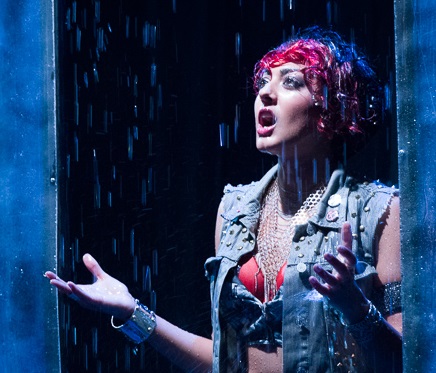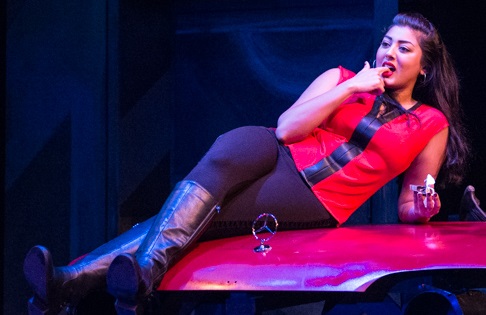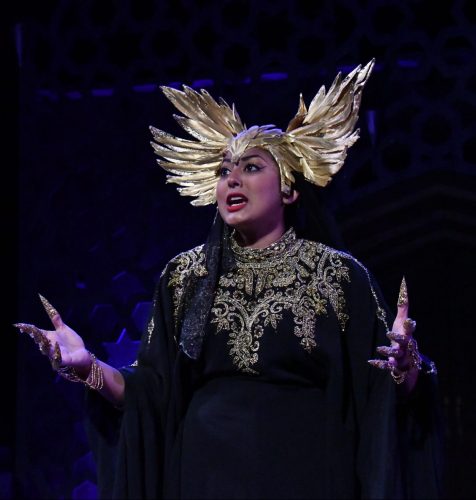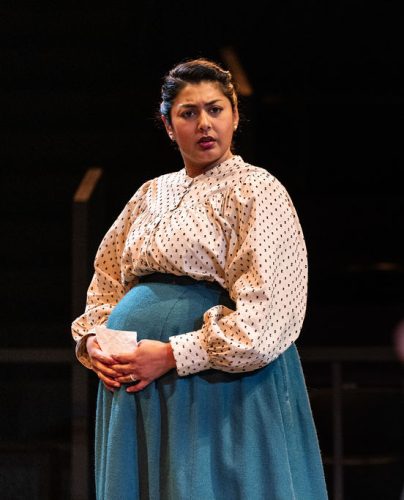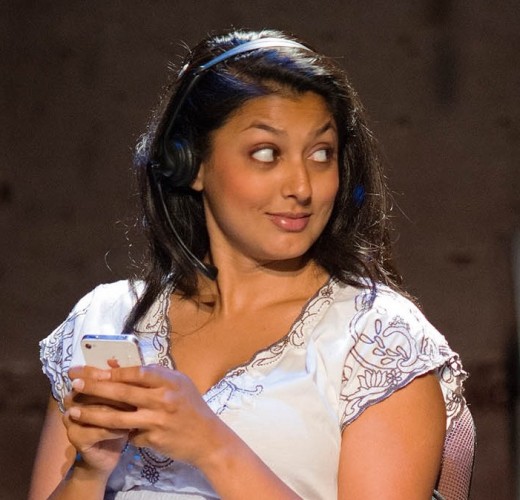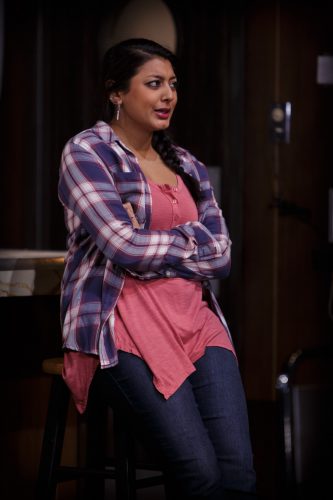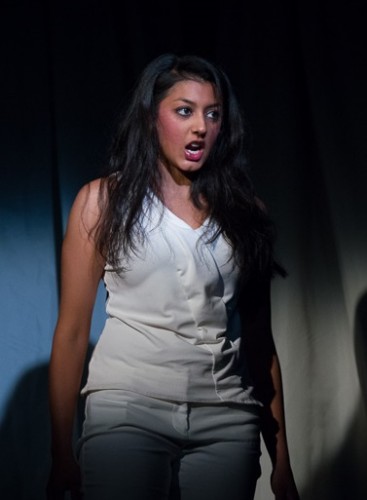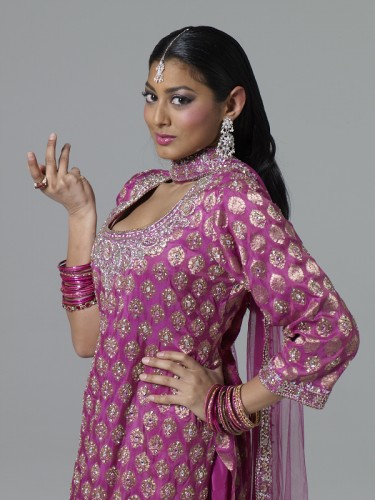WARNING: This post contains spoilers.
WARNING: I’m the world’s slowest writer; this took a few days to pen so yes, I’m aware that it’s timeliness is *slightly* off
WARNING: I welcome debate and discussion if you disagree!
I have never been to a midnight showing of a movie. People who know me will say it’s because I’m actually an 85-year-old man trapped in the body of a young woman (and they might have a point…bourbon is my drink of choice, I yell at the screen during football games, and I’m usually in bed or asleep by 11pm on any given night). But even before I hit “old age,” I just never had the desire to join the throngs of people crowding into movie theaters hours before midnight, vying earnestly to score a coveted “midnight showing” ticket, consuming mass amounts of popcorn and candy while waiting in an uncomfortable seat for the film to begin. I especially had no desire to be surrounded by people dressed as the film’s characters and/or getting into kerfuffles with strangers about their costume piece blocking my view of the screen. Beyond that, I go to the movies to ENJOY a film, not to listen to the person behind me explaining to his significant other the plot of the movie they’re here to see (while the movie is playing) or to strain to hear dialogue over the squeals and giggles of the tweenagers when the so-called “heartthrob” appears on screen. Like I said. I’m secretly an 85-year-old man. I prefer to go to the movies before noon, when I often get the entire theater to myself because everyone else is still asleep.
But, this past Thursday, I did it. I took a nap in the middle of the day, forced myself to put on real clothes, met up with a friend, and headed to the AMC in our neighborhood to see the midnight showing of The Hunger Games.
I, like so many others in the world, loved Suzanne Collins’ novels about the people of Panem’s 12 Districts and the Capitol of Panem’s annual reality show, where 24 children are chosen to battle to the death for the viewers’ amusement – a constant reminder that the Capitol is in Control; the Hunger Games are punishment for the Districts’ rebellion against the Capitol more than 74 years ago. I loved the character of Katniss Everdeen, with her tough-as-nails exterior, strong will, and independent – yet fiercely loyal – spirit. She became, for me, a female heroine of the sort that is rarely seen today, with nothing to prove to anyone but herself and not needing to rely on anyone but herself. I read the first book in a day, hungry to find out Katniss’ fate, yes, but also because I felt so uncomfortable while reading that I needed the catharsis of a happy ending (which, for me, didn’t happen until the end of the third book and then it was totally dissatisfying, but that’s another story).
I kept reading because I needed to know: Was I really rooting for the deaths of the other tributes – the other children – whose goal is to murder my heroine? Am I really hoping my heroine is capable of murder? Did I really just clap with glee because I found out that she is?
Like David Edelstein in his review for Vulture, I was haunted by the carnage of the Games, and I felt guilty (read: disgusted with myself) for silently hoping the other children would die so Katniss could live. I read the next two books in as many days, hoping, I think, to somehow redeem myself for behaving like the citizens of the Capitol – eagerly awaiting the next death cannon boom and taking bets on who would die next. (For the record, I feel the exact same way when I watch and enjoy the Showtime television show Dexter.) To me, the success of the trilogy lies in their ability to evoke this kind of response in the reader; the books weren’t entertaining for entertainment’s sake – I couldn’t put them down because they forced me to question what kind of person I am.
While watching the film on Thursday night (Friday morning?), I found myself giggling and gasping and getting verklempt right along with the rest of the audience. I left the theater and started gabbing with my friend about “how entertaining” it was and how well the film depicted various scenes from the books and how awesome Stanley Tucci was as Caesar Flickerman, the host who narrates the Games for the citizens of Panem. I fell asleep easily as soon as I got home.
It didn’t hit me until the next morning, and only then because I hadn’t had any nightmares about being chased by mutated people-wolf-bears or finding myself surrounded by familiar faces brandishing shiny weapons: did I just cheer for Katniss, without remorse?
In his review for Salon, Andrew O’Hehir wrote, “In fact, “The Hunger Games” [film] is precisely the thing it pretends to disapprove of: a pulse-elevating spectacle meant to distract us from the unsatisfying situation of the real world.” I realized that midnight-me was easily distracted by what was happening on the screen (possibly because she was tired or because she was surrounded by many other like-minded audience members?) and thus, merely sat back and enjoyed the show. Which would have been fine and dandy, except The Hunger Games is absolutely NOT something one should be able to just sit back and watch – it is a tragic, devastating story! The film was missing the essence of what made me love the books.
In the light of day, I was able to think more critically about the film I’d just seen: Why did the Capitol citizens seem lovable instead of despicable? Why did District 11’s revolt after Rue’s death feel so contrived? Why did Cinna seem to have more of a connection with Katniss than Peeta (sidebar: Lenny Kravitz, really?!)? Why did murder seem so pain-free, even tasteful? Why did the Games seem so…like a game?
Basically, I started feeling uncomfortable about NOT feeling uncomfortable, horrified because I hadn’t felt horrified. I realized that I’d let myself become part of the frenzy of just-another-tween-movie. The Hunger Games trilogy is a brilliant political commentary about government control (big brother, anyone?), rebellion, sacrifice, independence, survival…and it’s been adapted into a film about Team Peeta versus Team Gale. With arrows. (Peter Travers pretty much compares Katniss – my heroine! – to Bella Swan of Twlight in his gushing review for Rolling Stone, noting that both are “pursued by two laddies-in-waiting.” Which is, apparently, going to be the draw for the two sequels.)
The more I think about it, the more I realize that Director/co-Screenplay Writer Gary Ross tore out the beating heart of this film in exchange for a PG-13 rating. And Suzanne Collins (okay, Billy Ray, as third screenplay writer, you can share some of the blame, too) was privy to the plan. Which brings me to another question: why does Hollywood continue to insist on turning brilliant, thought-provoking books into purely entertaining films? Obviously the money in a franchise is a huge draw (I smell Team Peeta and Team Gale t-shirts in our future. And probably dolls. Or bobble heads. Ugh.) and I’m not an idiot – Hollywood loves money. Hollywood needs money. But shouldn’t the integrity of the book matter, too?
There are so many film adaptations of books gone awry (I’m looking at you I, Robot; The Time Machine; most of Stephen King’s work except The Shining, Misery, Carrie, and a few other notables; Gulliver’s Travels; et al) that I pretty much consider the entire genre uniformly disappointing. I’ve accepted that Hollywood makes these adaptations to cater to a very large audience, which is not necessarily limited to the fans of the books, and that part of the process generally includes parsing the books down to just their plot points and characters. This, I know, makes the films inherently disappointing – the filmmakers often have to sacrifice the nuances and subtleties of the books to attain mass entertainment appeal, which means they might reject honoring the books’ cores.
But then I look at successful films like American Psycho, Blade Runner, The Lord of The Rings trilogy, The Silence of the Lambs, heck even The Godfather – Directors Mary Harron, Ridley Scott, Jonathan Demme, and Francis Ford Coppola, respectively, didn’t shy away from the darkness at the soul of the books these films were adapted from; they embraced it. I was charmed by Marlon Brando’s Don Corleone, even as I shrank in my chair at how calmly he ordered his men to kill. I didn’t leave American Psycho wondering how many hours Christian Bale spent at the gym (full disclosure: at least not the first time!), I left it with the simultaneous need to shower and hug a cat, all while feeling totally fascinated by the depth of Patrick Bateman’s depravity.
Battle Royale (adapted from a book of the same name) evoked a similar feeling, minus the need for instant cat love. In fact, one could easily draw some comparisons between The Hunger Games and Battle Royale. The latter is an intense Japanese book-turned-film about a future government that chooses/captures a class of ninth grade students each year and forces them to compete in a battle to the death until only one is left, or else they all die. It is a compelling film that, like the politically charges book it’s based off of (which I read after seeing the film), forced me to question what I would do in that situation – could I kill my best friend to survive? Though I silently rooted for certain students to prevail, I certainly didn’t feel good about it. I was horrified by a system that perpetuated and allowed this evil cycle to continue, and yet I was relieved every time one of the “bad guys” died – often in a bloody, savage, violent manner – so the “good guys” had a better chance at winning. There was zero entertainment for me in Battle Royale – director Kinji Fukasaku (yes, I had to look that one up on IMDB) made it impossible for me to stop squirming over the idea of children murdering children. Conversely, Gary Ross made killing perfunctory in The Hunger Games – we don’t even see most of the tributes’ faces or hear most of their names so really, it was fine for them to die because I, the viewer, wasn’t “supposed” to care about them anyway.
As an actor, I long to portray roles that make people think and question and wonder. I don’t just want to entertain you, I want to confuse you, anger you, make you cry, make you sweat, make you have nightmares about something I did on screen or stage. I don’t want you to forget what you saw my character do because you were able to casually sit back and enjoy the show. When Rooney Mara’s Lisbeth Salander (or Noomi Rapace’s Lisbeth, for that matter) tortures and tattoos her rapist guardian in The Girl With The Dragon Tattoo, I was every bit as uncomfortable in the movie theater as I was reading the book – yet, I was also filled with a sense of feminist pride that she fought back. She terrified me and made me want to be her friend all at once.
Katniss Everdeen is also one of these characters, but I can’t help but feel that – as talented as she is – Jennifer Lawrence’s portrayal was one-note, that she was held back. Katniss is eerily similar to Ree Dolly, Lawrence’s wonderfully complex character in Winter’s Bone, except that nothing Katniss does – or how she reacts – is unexpected. The beauty of Katniss in the books was her struggle to maintain her independence and inner strength, even as she let other people see her weaknesses and vulnerabilities (Peeta, Cinna, Haymitch). The Katniss of the film is all steely all the time – I don’t believe she has genuine feelings for Peeta OR Gale, and she doesn’t even flinch after killing Marvel, the first human life she’s taken. I suspect that this was a directorial decision designed to not make the film seem too “real” – don’t worry, audience, it’s just a movie! They’re all killing each other, so it’s no big deal – but the problem with this tack is it leaves me wondering why I was rooting for Katniss in the first place; she ends up being just as ruthless as the next tribute.
As movie-goers, sure, we expect a certain level of entertainment when we retreat into the dimness of a movie theater for some distraction from the chaos of the day. But, as my friend and fellow actor Victoria Negri wrote on her blog, “when a book as violent, bloody and powerful as The Hunger Games is candy coated and hidden with shaky cam action and less backstory about its significance,” it gives me pause. It makes me angry. She points out that Stanley Tucci and his sparkly blue bouffant got more of a reaction out of the audience (inane laughter every time he flashed his pearly whites) than most anything else, including Rue’s death. In the movie theater I was in, everyone was laughing so hard at Woody Harrelson’s stumbling drunk Haymitch Abernathy, that it was easy to forget that he had been a tribute, too – that he himself had murdered many of the 23 other tributes when he was in the Games.
I wish Hollywood would stop walking on eggshells. Yes, The Hunger Games is a “young adult” book, but its themes and the questions it raises are quite mature. I don’t understand how someone could make a PG-13 movie about children murdering each other – the very idea is absurd to me, and it inherently limits the story one is able to tell. Lord of the Flies, which depicts a bunch of schoolboys’ descent into savagery (including ruthlessly murdering each other), received an R rating, allowing the filmmakers to truly explore humans’ primal nature and the resulting carnage and consequences. I believe The Hunger Games film is an adaptation of the book in the most banal sense of the word – the story is there, as are the characters and some of their actions, and the art direction and sound design are superb – and it is quite entertaining to watch. But I miss the sense of loss, the revulsion and terror I felt while reading the books. It’s terrifying that so many in the theater (myself included!) were able to stomach the events on screen so easily. That, to me, was the true tragedy of The Hunger Games – I was, in essence, a citizen of the Capitol, hungry for the next kill and betting on who would be the victor.
Dear Lionsgate, I will watch the sequels, Catching Fire and Mockingjay, but definitely not at a midnight showing (I don’t think I’ll ever do one of those again!) and most likely not even in a movie theater. I’ll save them for a night when I want to unwind after a hectic day, while I’m sitting on my couch with some homemade popcorn and a glass of wine. After all, I already know what’s going to happen to Katniss. I can wait to be entertained.





